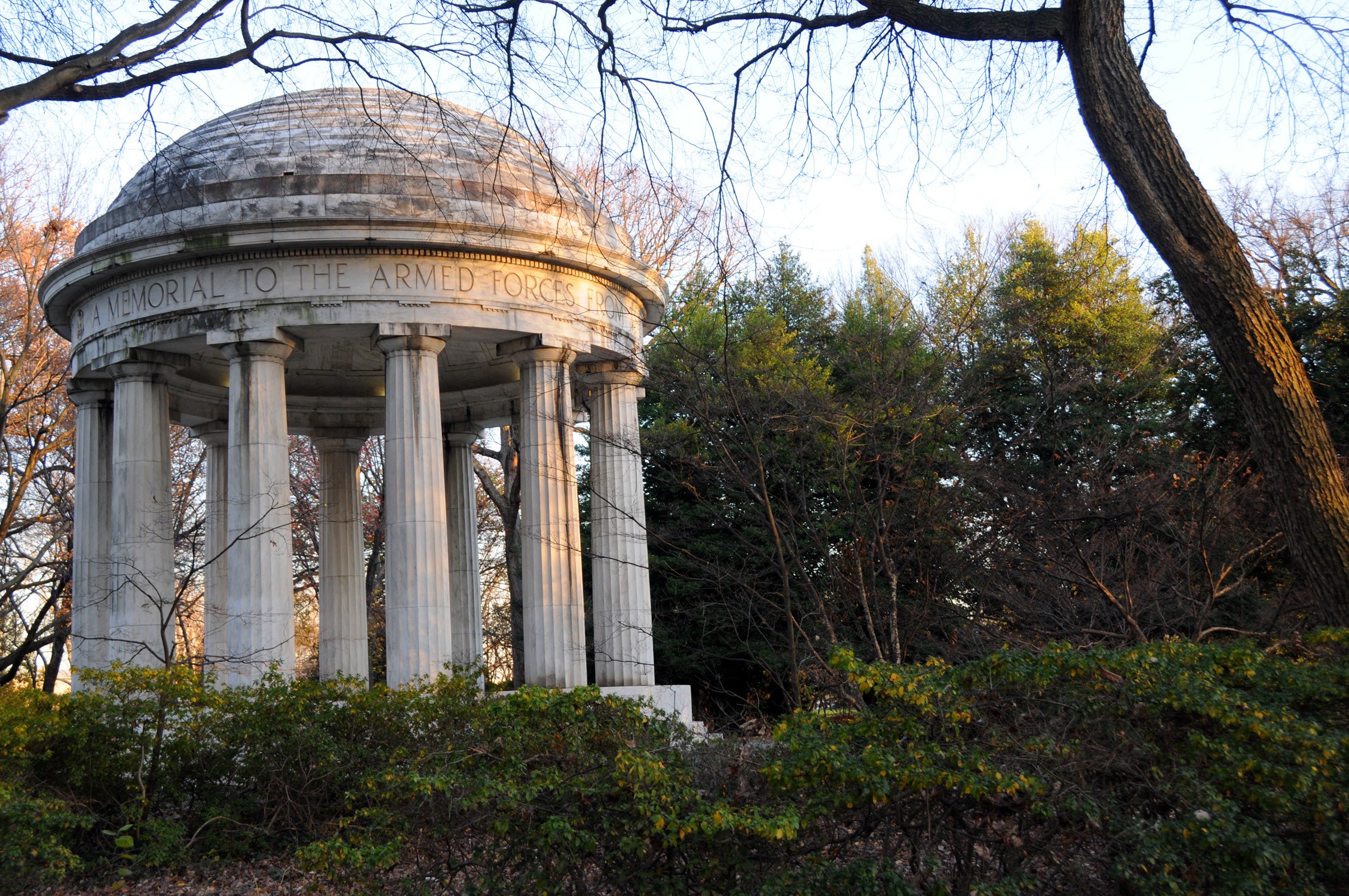WASHINGTON (Army News Service, Dec. 4, 2009) -- A push is underway to designate a national memorial to those who fought in World War I -- among those asking for such a memorial is the last remaining American veteran from that war.
"I think it's an excellent idea," said Frank W. Buckles, the 108-year-old World War I corporal who serves as honorary chairman of the World War I Memorial Foundation, about a memorial to remember the Great War. "There should be no question about it."
Two competing pieces of legislation for a national memorial to remember veterans of World War I are now moving through Congress. One piece of legislation would name the existing Liberty Memorial in Kansas City, Mo., as a national monument to veterans of the first world war. The other legislation, known as the "Frank Buckles World War I Memorial Act," would rededicate a memorial already in Washington, D.C.
Proponents of both pieces of legislation were on Capitol Hill, Dec. 3, to provide testimony before the Senate Committee on Energy and Natural Resources, subcommittee on national parks.
Buckles, who enlisted in the Army in 1917 at age 16, was in attendance at the hearing where the three senators who introduced the bill bearing his name gave testimony concerning dedicating a memorial in Washington.
"I think it is fitting that all the great wars of the 20th century have their place on the National Mall, so people, when they come here to pay their respects and to honor and pay tribute to those who served in all those great conflicts ... also have the opportunity to honor the veterans of World War I," said Sen. John Thune.
The Buckles act would rededicate as a national memorial the existing "District of Columbia War Memorial," which was built by citizens of the District of Columbia to commemorate their own who served in World War I. That memorial, dedicated by President Herbert Hoover in 1931, sits on the National Mall near the World War II Memorial, the Korean War Memorial, and the Vietnam War Memorial.
"In terms of a World War I memorial, I don't think there could be a better place," said Sen. Jim Webb.
Rep. Emanuel Cleaver II, of Missouri, spoke on behalf of the bill introduced by Missouri senators Claire McCaskill and Christopher Bond. That bill would designate the Liberty Memorial and the National World War I Museum in Kansas City, Mo., as the "National World War I Memorial."
The Liberty Memorial was built in 1926 with funds collected from citizens of Kansas City and was meant to represent all Americans that fought in the war, Cleaver said.
"The Liberty Memorial was built not as a municipal memorial, but as the national memorial, which is why 100,000 people, including all five leaders of the allied forces gathered (there) for the beginning and opening," he said. "This is a national monument."
The bill Cleaver supports says no federal funds will be used to maintain the memorial. Instead, he said, citizens of Kansas City have agreed to maintain the memorial.
"This was something that our community will continue to give for the nation," he said. "We assume the responsibility completely, and we hope that you would see fit to give the people of Kansas City the opportunity to continue to spend their own money to preserve something for the nation."






Social Sharing